Are you ready to connect your connected workforce?
With all of the discussions around social media and how it improves the opportunity to engage customers and build more meaningful relationships, we tend to lose sight of another important group…employees. As technology impacts behavior and connects customers and businesses in new ways, the same is true for employees.
With every new social and mobile network, every new smart device, and the materialization of trend after trend, people become increasingly informed, connected, empowered, and also demanding. As a result, businesses are making significant investments in new marketing technology to pursue and engage connected customers where their attention and time is focused. But these same connected customers are also your connected employees. And, how they’re expectations are evolving as well. These digital natives equally require engagement.
Before you can engage externally, you must first engage within.
The Generation Gap
Within your organization, a “C” change is developing, one that will transform the company from the inside out. This C change refers to connectedness as your connected employees will demand new processes and reward systems to satisfy their needs and motivate their professional development. Today, the balance between the generations within is tilted toward Boomers and Generation X. But, in just a few short years, the balance will shift to the Millennial (Generation Y) and how they communicate, collaborate, learn, and grow is much more digital than older demographics can appreciate. For the Millennial, digital is in their DNA.
To visualize the generation gap, ComplianceandSafety.com, a provider of training materials on workplace safety, released a telling infographic that tells a powerful story of the disruption that looms on the horizon.
As stated at the top of the image, “over the next five years businesses will witness an unprecedented generational shift in the workplace.” This will have an almost unfathomable impact on not just how the company operates, but also its operating philosophy and overall culture. If businesses don’t take a proactive approach to defining this over the next several years, it will be defined organically. And, it might not evolve according to a favorable vision and purpose.
Currently 70 million people in the US belong to the Millennial Generation. They represent 35% of the workforce today and by 2014, they will comprise of almost half of all employed professionals. In a separate study conducted by Millennial Branding, it is expected that by 2025, Generation Y will represent 75% of the workforce.
To say that businesses are in for a culture shock would b a gross understatement.
As the infographic notes, Millennials represent a surging eruption that will have a lasting effect on organizations almost over night. One of the factors leading up to this moment was quietly but valiantly influenced by the tumultuous economy that pulled U.S. consumers through a persistent recession. Boomers, unfortunately, were forced to delay retirement plans to regain losses to their financial nests and also invest in any potential catastrophic events that could re-appear. Now, as Boomers begin to retire en masse, Millennials will realize career advancement like no other generation before them.
As the infographic notes, Millennials will be given high levels of responsibility earlier in their careers than previous generations.
These employees are your new consumers. They are the face and voice to the company. They are your new ambassadors and what’s important to them requires study now. Ultimately the generation gap requires bridging led by those on either side of the gap. For the boomers and Generation X’ers who represent today’s decision makers and those Millennials who are on the rise, research and open dialogue will set the stage for the future of not just the workforce but the tone and culture of tomorrow’s business.
With the shift in generations comes a shift in value and values. Leadership is at risk of a great disconnect. Leaders will find their power lost if they cannot relate to this new generation and equally if Millennial s can’t relate to today’s leaders. Before a baton can be passed along it needs to mean something. It needs to symbolize the closing of the generation gap between employees and ultimately customers.
Conversations about the vision and purpose of an organization and how it relates to a rising generation of employees and customers cannot begin soon enough. At the same time, what must stop is any mindset or approach of “us versus them.” Complaining about Millennial behavior or expectations is met only by Millennial complaints about aging management. They’re different. Get over it. If you’re not building bridges your weakening the foundation upon which the future of your business sits.
You must take the first step.
The question to answer is what does your brand or mission mean to tomorrow’s customer or employee? How will they align with it and stand behind it?
This is an effort that’s far bigger than HR. This is a brewing groundswell that’s already impacting business from the bottom-up. Your mission now is to lead transformation from the top-down to meet in the magic middle.
My new book…#WTF
Connect with me: Twitter | LinkedIn | Facebook | Google+ |Youtube | Instagram

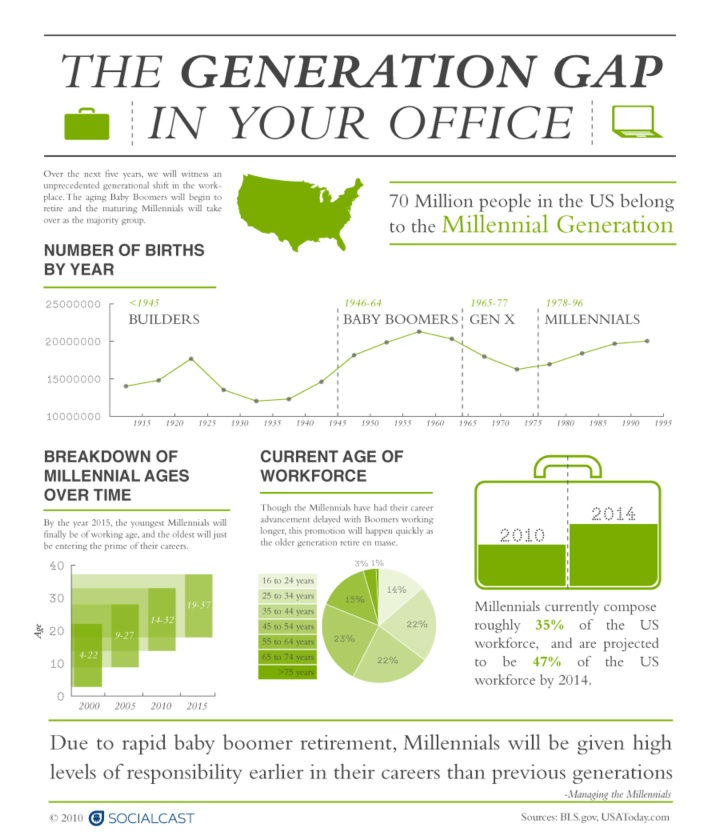
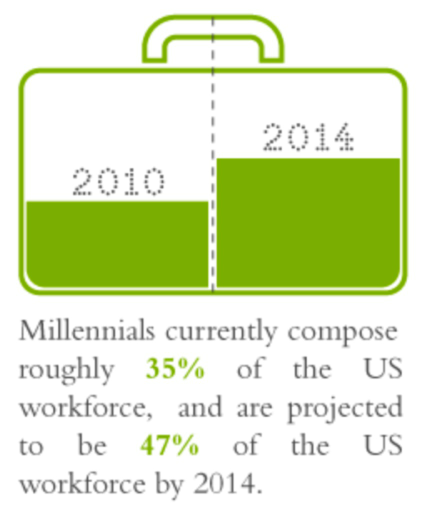
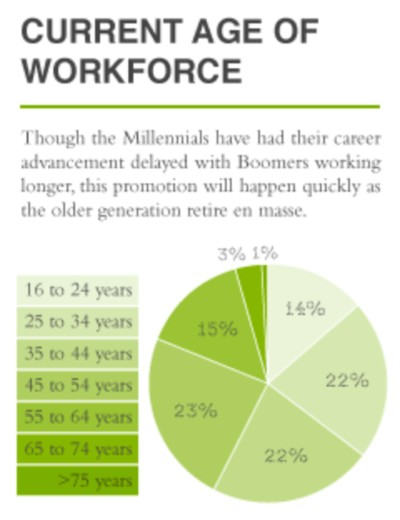

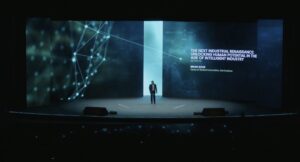
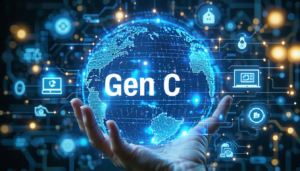



Its attitude my dear, not age that is the divider here
so so so true.
Great post, Brian. In my work with CEOs, what I see … those using social media seem to get closer to their employees and customers by linking more to the outside world. I also see many scared to death or totally dismissive of social media. People want their leaders to be authentic and accessible. Social media can help get to the ‘magic middle.’ I recommend CEOs experiment for themselves to understand where their employees live online. I, myself, jumped in several months ago and I am enjoying making new relationships and connections.
The main theme of this post, for everyone asking about Generation X, is that there’s a middle ground and we all need to work to find it…matures, boomers, and Gen X, Y and Z.
thank you cause as a Gen Xer I find we got a bit of a shuffle under the rug from the older generation and a arrogance from the younger Gen Y’s like get out of our way – greed and force of many more of them, got in the way. Meanwhile we are the grand levelers and have the broad independent longview perspective that the younger gen could really use / take advantage of. i.e. job hopping, responsibility & communication. I’m willing to find a middle ground are the rest excepting enough.
It’s a fantastic post, Brian, and a great point. I’m just surprised more people aren’t attune to this — it seems like it should be a no brainer, you know?
I like your point that before we can engage Gen Y (or Gen C) on the OUTSIDE the company, we must first engage them withIN the company. If you’re working with Millennials (and I am), you’ll know firsthand that there is a MAJOR shift happening with regards to work environment and expectation. If you don’t know what those expectations are, I’d recommend you find out — and FAST — and here’s why:
This generation has a tendency to job-hop. If you find a way to keep your Millennial employees charged up and happy in your work environment, I’d say that’s the first step in understanding the mindset of your Gen C customers (and your Millennial employees are going to have KEY insights to this as well, so you’re gonna wanna keep them!).
As always, Brian: great discussion to start. Just wrote a couple blog posts about this topic last month so it’s been fresh on my mind.
Great article and thanks for passing on the eye opening infographic – makes you think!
true
In my opinion gen y’ers are more tech savy, innovative, better connected, have better job opportunity, value personal freedom more, capable of mass mobilisation etc. Again futre client for any organisation is gen Y’yer having same traits. Thirdly irrespective to the time and era the good business practices will never lose relevance. Lastly the change is inevitable. Therefore for any organisation it is essential to accept the genuine requirement of gen Y and gen Y has to understand and accept the organisational need of having good business practices. Of course the the onus of preparing ground for bridging the gap lies on the older gen. The entire process has to be top driven and should not be left as baby of the HR department alone.
Great article. There will always be a generational gap, but in my experience I’m happy to see more and more clients using less and less generalizations of their employees. Boomers v Next Gen’ers; experience v idealism. Too broad of strokes will cause you to miss out on prime players and opportunities. Just because you’re young doesn’t mean you want to bring your dog to work and work for a non profit and just because you are experienced doesn’t mean your way was always the best way.
Props to building bridges, it’s an important key to anyone who wants to leave a legacy.
YES, these are the real questions and issues! “The question to answer is what does your brand or mission mean to tomorrow’s customer or employee? How will they align with it and stand behind it?”
In some ways the title – while catchy and got me to click on it- is a bit misleading as the article presents the issues quite differently and far more strategically than those still delivering PowerPoint presentations citing age differences that their audiences find not valid – or at least for those who are constantly learning and upgrading.
This is a refreshing take that addresses the real and actual issues. Also, the comments so far are refreshingly reflective of these key issues.
Quite frankly no age group has a corner on the market of good or bad management. The problem is that in some firms it is just HR struggling with this issue – or not – and if the whole firm is not engaged, then HR simply keep bringing in more of the same quality hires who don’t stay for long or who don’t contribute more than those they replaced as they have been oversold and under delivered. They just accept high voluntary turnover as the way it is.
What we see in our business is that the strong global brands who understand their customers and the linkages to their brands are also are the ones who understand what kind of managers and employees who are needed to deliver on their brand promises. It is these organization who take the needed steps to hire for the right qualities as well as listen to their people regularly and via engagement surveys. They hire those who represent their brand values as well as those who are prepared to contribute ideas and who are open to listen and work well with others.
As part of the Millennial Generation myself, this article has been very interesting. I am glad people are raising awareness of this issue. It certainly paves the roads to future employees like us. However, I understand that business is a two-way street. We Millennials must be also willing to understand and research the characteristics of the previous generations. We cannot just expect everyone to fit in to our perspectives. Having said this, does anyone have any advice for Millennials trying to understand and study the previous generations that we will be working for?
I quite enjoyed the article; I will be sharing this with my friends!
Y U IGNORE GEN X?
https://www.briansolis.com/2013/08/the-disconnect-between-aging-management-and-the-younger-workforce/#comment-1010945932
Good article Brian, and nice set of infographics! As a GenXer working with GenY I think it’s important to set expectations and communication boundaries. Be clear how your office (or environment) works and what’s expected – obviously this could ring true for anyone, but the overall goal is to set your employees (or co-workers) up to succeed.
A friend of mine recently held up his iPhone over dinner and pronounced, “this is the lowest level of technology my kids will know”. These coming generations are going to have insights and ideas that are most likely outside of things we’ve thought of. Setting them up with metrics as to how to evaluate and create value from them means we all win.
true
Millennials will make up almost half of the workforce as early as next year and the disconnect described in this article MUST be fixed. In my experience there are five keys to do it—with discipline, support, creativity, insight, and values. I call this the All-In Leadership Roadmap. Although their methods of carrying out discipline may look different than those of past generations, most Millennials are focused on getting the job done. With the right support (including being truly open to their input), they can pave a path within their organization that allows them to do their best work. They are a creative generation, well equipped to think outside the box, and willing to act on their instincts: both critical when an organization is faced with new challenges. As a group, Millennials are incredibly insightful and self-confident. And they support values-based organizations because they seek meaning and want to connect with organizations that stand for the same things they do. Let’s connect with this talented group!
At present, Managing Gen X and the Baby Boomers is becoming more and more common for Millennial managers. I notice that there are some misperception of how these employees need “special treatment.” Some Millennial managers feel they need to be cautious or patient with their older employees, giving them special treatment to accommodate their “special needs.”
Enlightening article, a must read for executives, human resource professionals,employees and others. From my perspective, common ground is discovered via candid communication and a willingness to compromise based upon increasing outcomes,accomplishments of objectives, and the best results. The bottom line is everyone wants to win, they just differ on the approach of how to get the victory. DCAMF